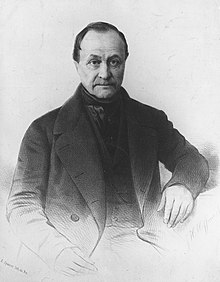Sort/Filter
Title (A - Z)
Title (Z - A)
Mint Date (New - Old)
Mint Date (Old - New)
Published Date (New - Old)
Published Date (Old - New)
Coming Soon
Minting Now
Sold Out
Last 24 Hours
Last 7 Days
Last 30 Days
Last 365 Days
Author
A. A. Milne
Aaron C. Anderson
Abraham Merritt
Adam Bonislawski
Adam Mansbach
Adam Smith
adamemes.com
Aesop
Agatha Christie
Aggie Lal
Alan Calder
Alan Dean Foster
Alan Sisto
Aldous Huxley
Alexander Hamilton
Alexandre Dumas
Alexis de Tocqueville
Algernon Blackwood
Alice Ilgenfritz Jones
Alice Turley
Ambrose Bierce
Andew W. Nichols
Andreas Köstenberger
Andrew Pattison
Andrew Yang
Anita Loos
Anna Sewell
Anne Stuart
Anthony Hope
Anthony L. Chute
Antonio Chen
Antony Lewis
Apollonius Rhodius
Apuleius
Aristophanes
Aristotle
Arnold Bennett
Art Bell
Arthur Edward Waite
Arthur Quiller-Couch
Atala Prism
Auguste Comte
Aunt Naomi
Ayn Rand
Bajuzki Studios
Barbara DeMarco-Barrett (Editor)
Baroness Orczy
Barry Kouns
Barry Z. Posner
BDO USA, P.C.
Ben Illian
Ben Jonson
Benedictus de Spinoza
Benjamin Franklin
Benjamin L. Merkle
Benjamin Sacks
Bernard Marr
Bernice L. McFadden
Bertrand Russell
Bill Cates, CSP, CPAE
Bo Tao Michaëlis (Editor)
Bob Suren
Boethius
Brad Gilmore
Brady Dale
Bram Stoker
Brian Trueblood
Bridget Kenyon
Bruce Ratner
Bryant Bedell
C.J. Spotswood
Candace Wheeler
Candice Sinclair (Editor)
Captain Charles Johnson
Caren Simpson McVicker
Carey Rockwell
Carla Winters
Carlo Collodi
Carolyn Wells
Catherine M. Robb
Charles Darwin
Charles Dickens
Charles L. Quarles
Charles Lindbergh
Charles Spurgeon
Charlie Stratford-Rex
Charlotte Bronte
Charlotte Perkins Gilman
Christopher Marlowe
Christopher Morgan (Editor)
Christopher Wright
Chuck D
Chuck Lawless
Clemence Housman
Colette Bancroft (Editor)
Craig Rice
Cryptofluency.io
Cynthia Jurs
D. B. Reynolds
D. H. Lawrence
Dagogo Altraide
Dakota Willink
Daniel Defoe
Dante Alighieri
Dashiell Hammett
Dave Logan
David Barrow
David Connell
David Duchovny
David Hume
David L. Ulin (Editor)
David Niall Wilson
David R. Slayton
Deb Calvert
Debbie Soon
Deborah Smith
Denise Hamilton (Editor)
Dennis Lehane (Editors)
Diana Pharaoh Francis
Don Noble (Editor)
Donnell Ann Bell
Dorian Tilbury
Dr Julie E. Mehan
Dr. Laura Reder
Dr. Sigmund Freud
Duke Victorious
Dwayne Eutsey
E. M. Forster
Edgar Allan Poe
Edgar Rice Burroughs
Edith Nesbit
Edith Wharton
Edouard Naville
Edward Gibbon
Edwin A. Abbott
Eleanor Langley
Elizabeth Gaskell
Elizabeth von Arnim
Ella Merchant
Elliott O'Donnell
Elyon Cael
Epictetus
Erich Maria Remarque
Ernest Hemingway
F. Marion Crawford
F. Scott Fitzgerald
Faith G. Harper, PHD
Felix Salten
Fergus Hume
Fitz Hugh Ludlow
Frances Hodgson Burnett
Franklin W. Dixon
Franz Kafka
Frederick A. Talbot
Frederick Douglass
Frederick Irving Anderson
Friedrich Engels
Friedrich Nietzsche
Fritz Leiber
Fyodor Dostoevsky
Gary Hibberd
Gary Phillips (Editor)
Gary R. Habermas
Gaston Leroux
Geoffrey Chang (Editor)
Geoffrey Chaucer
George Eliot
George F. Chambers
George Grossmith
George Lippard
George MacDonald
George Orwell
George P. Putnam
George Pelecanos
Georgie Mills
Gertrude Chandler Warner
Gilbert Chesterton
Gill Hasson
Gina Azzi
Giovanni Boccaccio
Gustave Flaubert
Gustave Le Bon
H. A. Guerber
H. Beam Piper
H. C. McNeile
H. Rider Haggard
H.G. Wells
H.P. Lovecraft
Harold Wheeler
Harriet Beecher Stowe
Harrison West
Helen Hunt Jackson
Helen Rowland
Henry David Thoreau
Henry Fielding
Henry Jacoby
Henry James
Henry M. Stanley
Herman Melville
Hermann Hesse
Homer
Honoré de Balzac
Hopeton Hay (Editor)
Howard Pyle
Hugh Lofting
Hugo Gernsback
Ida Husted Harper
Ignacio J. Durruty
Immanuel Kant
Intan Zulkifli
J Boykin Baker
J. Earl Clauson
J. Jeremy Wisnewski
J. K. F. Sandham
J.M. Barrie
Jack Friks
Jack London
Jacob Abbott
Jacob Grimm
Jake Kouns
Jake Thompson
James Allen
James Deetz
James Fenimore Cooper
James Hicks
James Joyce
James M. Kouzes
James Madison
James McNeill Whistler
James P. Sumner
James R. Adair
Jami Davenport
Jan Salisbury
Jane Austen
Jarret Keene (Editor)
Jason M. Appleton
Jason T. Eberl
Jay Anderson
Jeb Blount
Jeff VanderMeer
Jenny Boyd
Jerome K. Jerome
Jill Marie Landis
Jillian Godsil
Joan Westenberg
Johann David Wyss
Johannes Gutenberg
John Adams
John Buchan
John Dewey
John Greene
John Jay
John Keats
John Milton
John Philip Quinn
John Potash
John Reed
Johnston McCulley
Jon F. Merz
Jonathan J. Sanford
Jonathan Swift
Joseph Conrad
Joseph Eleam
Joseph Nassise
Joseph Sheridan Le Fanu
Joshua Ellul
Joshua Miller
Joshua Stone
Jules Verne
Julie Schaper (Editor)
Justin Laporte
K. K. Kaafir
K. T. Conte
Ka-Sekhem
Kahlil Gibran
Kaitlin Bevis
Karl Marx
Kat Mizera
Kate Chopin
Keith Rosen
Ken Miller
Ken Napzok
Kenneth Grahame
Keri Arthur
Kevin Holohan
Kevin S. Decker
Kevin Sampsell (Editor)
KFMEDIA
Kitten Anderson
Kristen Ness
L. Frank Baum
L. R. Braden
L. Ron Hubbard
L. Scott Kellum
Laozi
Larissa.Health
Larry A. Freeland
Lars Brünjes
Lars Emmerich
Laurie Loewenstein
Leo Tolstoy
Leonardo da Vinci
Lew Wallace
Lewis Carroll
Lewis Spence
Lilith Saintcrow
Lord Dunsany
Louis Masterson
Louisa May Alcott
Lucian of Samosata
Luciano Marazzo
Lucy Grimwade
Lucy Maud Montgomery
Lydia Hicks
Lynne Basham Tagawa
M. R. James
Maaza Mengiste (Editor)
Marco Polo
Marcus Aurelius
Marcus Ubani
Margery Williams
Marjie Hadad
Mark Cuban
Mark D. White
Mark Pettit
Mark Towse
Mark Twain
Marsha Jacobson
Mary Roberts Rinehart
Mary Shelley
Matthew Snider
Maurice Leblanc
mBaileyz
McDermott Will & Schulte LLP
Memebooks Library
Meriwether Lewis
Michael A. G. Haykin
Michael G. Thomas Jr.
Michael Ruhlman (Editor)
Michael Yee
Michelle Kaminsky
Miesha Wilson Headen (Editor)
Miguel de Cervantes Saavedra
Mike Kalinowski
Mike Martin
Molé Mama
Molly Odintz
Murray Leinster
Nathan Finn
Nathaniel Hawthorne
Niccolo Machiavelli
Nick Chatrath
Nina Revoyr
Noah Webster
Nostradamus
Oliver Benjamin
OptArray
Oscar Wilde
Osgard Vago
Osiris Antonio Contreras Contreras
P.G. Wodehouse
P.T. Barnum
Pádraic Colum
Pam Mantovani
Pansy
Parker Blue
Pascuala Herrera
Patanjali
Paul Jenkins
Percy Bysshe Shelley
Peter Le Page Renouf
Peter Telep
Phil Conner
Philip Francis Nowlan
Phillip Wood
Pierre Louÿs
Pierre-Joseph Proudhon
Plato
Pliny the Elder
Preston L. Allen
Quinn Loftis
R.L. Garner
R.L. Stine
R.N. Etienne
Richard Brian Davis
Richard Marsh
Rick Strassman, MD
Rivers Solomon
RJ Regenold
Robert A. Clark
Robert A. Heinlein
Robert Arp
Robert L. Plummer
Robert Louis Stevenson
Robert Macnish
Robert R. Livingston
Robert Sterling Yard
Robert W. Chambers
Roger Sherman
Ron Kovic
Ronald Silbermann
Rosalyn Rourke, MSW
Rudolf Erich Raspe
Rudy Ruiz
Rudyard Kipling
Russell Conwell
Rusticiano da Pisa
Ruth Edna Kelley
Ruthellen Josselson, Ph.D.
S. Baring-Gould
S.P. Rowe
Sarah Cook
Sarah Katz
Scott Montgomery (Editor)
Semuel Campwel
Seneca
Seoyoung Kim
Seth Ring
ShadowFS
Shaun Jeffery
Shawn Bailey
Shawn E. Marchese
Sherman Lewis
Sir Arthur Conan Doyle
Sir Edwin Arnold
Solomon Northup
Sooraj K. Saju
Sophocles
Stephanie Molina RN, MSN
Stephen Crane
Stephen Hancock
Stephen J. Wellum
Stephen Marche
Sterling Watson
Steve Watkins
Steve Zaffron
Steven Horwitz (Editor)
Steven Savile
Steven Teplitz
STORM Partners
Sun Tzu
Sunshine Anderson
Suzy Kang
T.W. Wright
Talon Bret
Tayari Jones (Editor)
The Church of Jesus Christ of Latter-day Saints
Theo B. Wilson
Theodore Roosevelt
Thomas Commerford Martin
Thomas De Quincey
Thomas Hobbes
Thomas Jefferson
Thomas Mann
Thomas More
Thomas Paine
Thomas R. Henry
Thomas S. Gowing
Thomas S. Kidd
Thomas Schreiner
Thomas Smith
Thomas W. Lawson
Thorpe Brown
Tim Canada
Tim Dieppe
Titus Lucretius Carus
Todd James Pierce (Editor)
Tom Leveen
Traci Harding
Trevin Wax
Unknown
Upton Sinclair
US House Select Subcommittee
Various
Various Authors
Vatsyayana Mallanaga
Vector Meldrew
Victor Hugo
Virginia Woolf
Voltaire
W. E. B. Du Bois
W. J. Baltzell
W. N. Hutchinson
Walt Whitman
Walter Scott
Warren Evans
Washington Irving
We the People
Web3Spotter
Weedon Grossmith
Weldon Long
Wilhelm Grimm
William Bradford
William Clark
William F. Cody
William F. Cook III
William Faulkner
William Harrison Ainsworth
William Hope Hodgson
William Irwin
William Makepeace Thackeray
William Shakespeare
William Sharp McKechnie
Zahra Biabani
Zane Grey
Action
Adventure
African American Literature
Alternative Medicine
Animals
Anthology
Art
Artificial Intelligence
Astronomy
Baptist
BDSM
Biblical Languages
Bitcoin & Cryptocurrencies
Blockchain Governance
British Literature
Business
Cancer Prevention
Career Development
Children
Christian Historical Fiction
Christian Living
Christian Theology
Christianity
Classics
Comedy
Comics
Computer & Internet
Constitutional Law
Cooking
Cosmic Horror
Creativity
Crisis Management
Cryptocurrency Philosophy
Cultural Studies
Cybersecurity
Dark Romance
Data Protection
Decentralized Systems
Doctrine
Dystopian
Economics
Encyclopedic Literature
Environmental Science
Epistle
Erotic Literature
Esoteric Studies
Essays
Ethics
Existentialism
Family
Fiction
Absurdist Fiction
Adult
Adventure Fiction
Children's Literature
Contemporary Fantasy
Contemporary Romance
Contemporary Women's Fiction
Crime Fiction
Dark Fantasy
Detective Fiction
Didactic Fiction
Drama
Dystopian Fiction
Epic Poem
Erotica Literature
Fable
Fairy tale
Fantasy
Fantasy Fiction
Fantasy Romance
Feminist Fiction
Folklore
Gothic Fiction
High Fantasy
Historical Fiction
Historical Romance
Literary Realism
Magical Realism
Metaphysical Fiction
Musical
Mystery
Mythology
New Adult Fiction
Noir Fiction
Novel
Novella
Parable
Paranormal
Paranormal Fantasy
Parody
Philosophical Fiction
Play
Psychological Fiction
Roman Literature
Romance
Satire
Science Fiction
Scientific Romance
Short Story
Speculative Fiction
Sports Romance
Supernatural Fiction
Supernatural Horror
Suspense
Thriller
Time Travel Fiction
Trilogy
Urban Fantasy
Utopian Fiction
Vampires
Victorian Literature
Western Fiction
Young Adult Fiction
Film Criticism
Film History
Finance
French Literature
Geography
Global Studies
Graphic Novel
Health
Historical Literature
Holiday Literature
Horror
Humanities
Humor
Information Security
Information Technology
Innovation
Investment
Italian Literature
Latina Fiction
LGBT
Literature
Management
Marketing
Media Studies
Medical
Medicine
Mental Health
Military
Money
Music
Music Criticism
Music History
Mysticism
Mythic Fiction
Natural History
Nature Writing
Network Security
New Testament
Non-Fiction
American History
Autobiography
Biblical Studies
Biography
Biology
Budgeting & Money Management
Climate Change
Dictionaries
Documentary Literature
Entrepreneurship
Evolution
Gospels
Historical
History
Language
Law
Leadership
Letters
Memoir
Metaphysics
Native American History
Personal Development
Philosophy
Political
Prophecy
Psychology
Reference Work
Religion
Science
Self-help
Sociology
Spirituality
Treatise
True Crime
Nutrition
Occult
Operations Management
Parenting
Philosophy
Photography
Picture Book
Poetry
Policy Analysis
Political Essays
Political Philosophy
Politics
Popular Culture
Post-Apocalyptic
Professional Development
Progressive Fiction
Project Management
Prophecy
Public Health
Quality Management
Regulatory Compliance
Religious Criticism
Reverse Harem
Risk Management
Ritual Magic
Romanticism
Russian Literature
Sales Management
Security
Semi-Fictional Narrative
Sensational Literature
Shifter
Social Commentary
Socratic Dialogue
Spiritual Growth
Standards and Compliance
Technical Documentation
Technology
Television
Theology
Theory
Tragedy
Travel
War Story
Whitepapers
Adventure
Audiobook Essentials
Audiobook Genesis
Banned
Banned Audiobook
Banned Book-A-Day
Blackstone Banned Audiobooks
Book Holiday 2025
Book Holidays
Book.io Con 2024
Choose Your Adventure
Classics
Dickens
Dickens Audio
El Paso Verse
Essential Audiobook
Fantasy
Flash Mint
Foundations of the United States
Gina Azzi
Hashing the Past
IRL
Knowledge and Learning
Living Author
Living Author 2.0
Misfits
Monday Meditations
Monday Meditations 1.0
Monday Meditations 2.0
Monday Meditations 3.0
Monday Meditations Audiobook
Monster
Monster 2.0
Monster Audiobooks
Multi-Chain
O.G.
Pop Culture
Rulers and Revolutions
Shakespeare
Why We Love
Wildlife
Women Author Wednesdays
World Premier
Algorand
Base
Cardano
Ethereum
Polygon
Audiobook
eBook


